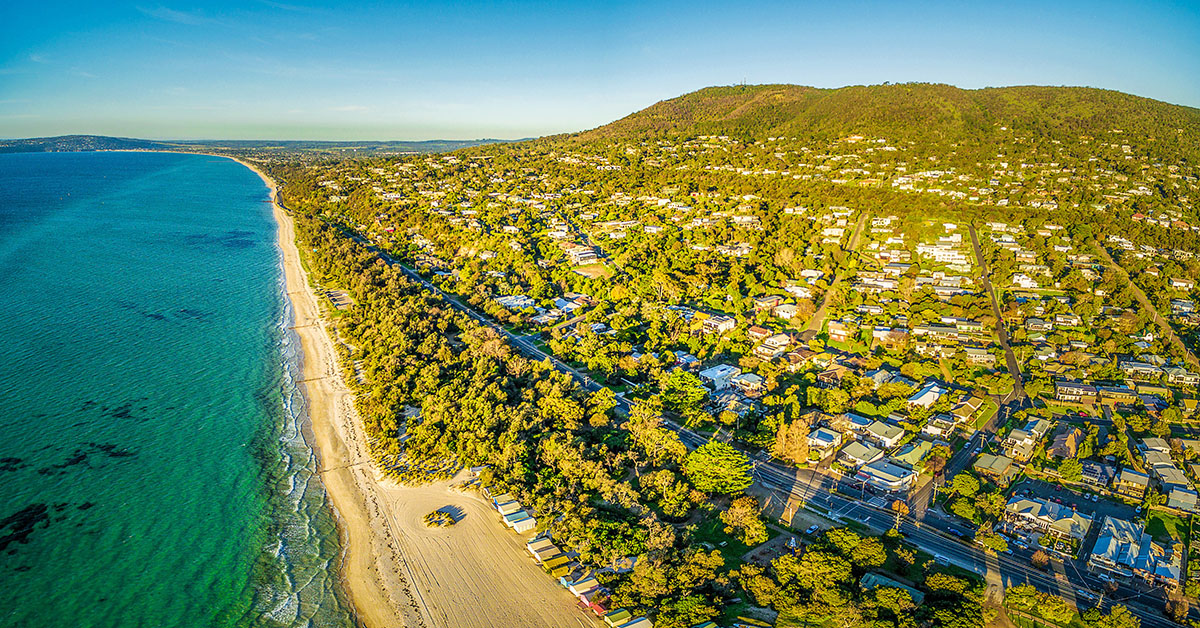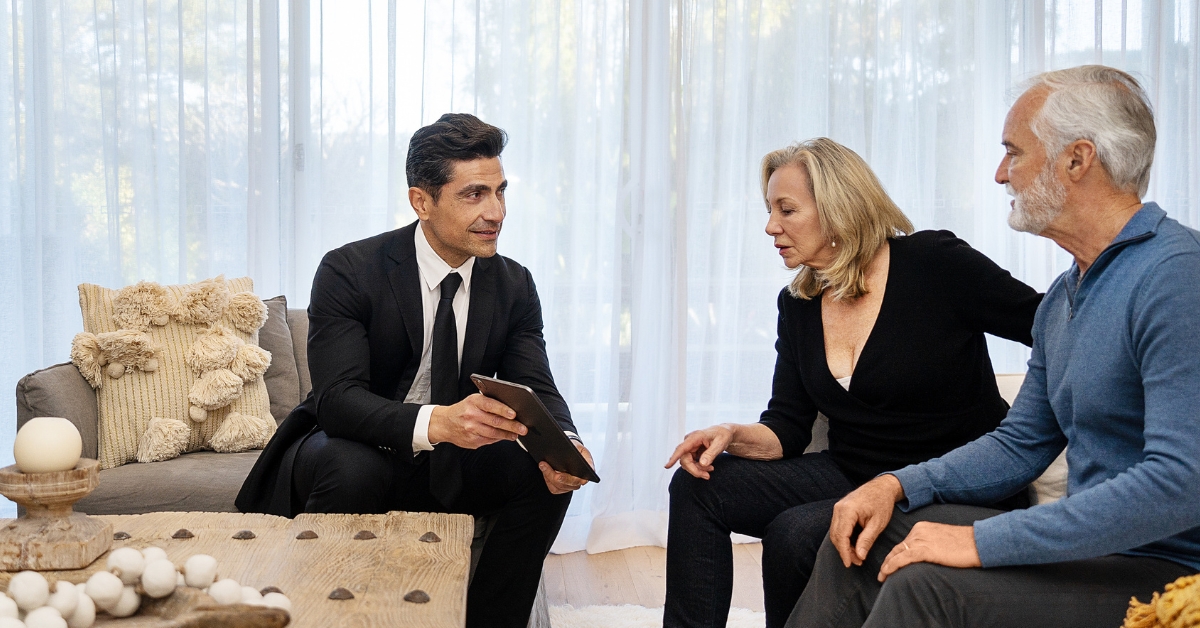Guide to Property Investing in Victoria

When you want to grow your wealth, investing in residential real estate is an excellent way forward. It is a relatively safe haven for your finances, and has the potential to produce excellent returns in the long term.
However, the intricacies of property investment might be lost on a lot of people - especially if you're engaging this market for the first time. There are a lot of differences between buying as an owner-occupier and making a purchase as an investor, some of which can add thousands of dollars to your plans. As such, read on to find out how to get started.
Different types of property investment in Victoria
When you purchase a Victorian investment property, there are two distinct ways to set it up:
Positive cashflow property
A positive cashflow property is one where the rental income you make is higher than the costs of running the house, which includes your home loan and ongoing maintenance costs. The property will operate at a profit, with a decent rental yield.
Even so, when property values rise, rental yields contract. This makes it more difficult to establish positive cashflow from your Victorian investment property.
Negatively geared property
This term is the opposite of positive cashflow - your property will be running at a loss, because the interest on your home loan exceeds what you receive in rent. However, negatively geared property can benefits from tax cuts, making it popular among investors looking to make the most of capital gains. A negatively geared property operates at a short-term loss, mitigated by tax breaks, but produces profit in the long term.
This method remains a popular one in Victoria, as values continue to rise, especially in thriving Melbourne. Even so, your own investment strategy will depend largely on your income. The team at LJ Hooker Home Loans can help you understand these concepts a little better, as well as lend advice on how to proceed with your investment property in Victoria.
Financing a Victorian property investment
An investment home loan will usually cost you a little more than an owner-occupier regular fixed or variable mortgage. Even though this difference can be as small as 0.2 per cent, it can add up to thousands of dollars over time.
By employing the help of professionals such as LJ Hooker, we can help you figure out what the payments will be on an investment home loan, as well as deliver a wide variety of mortgage options.
Additionally, you should remember that since the Australian Prudential and Regulatory Authority tightened conditions on investment lending in 2015, loan value ratio is liable to cap at 80 per cent, and could even fall to 70 per cent. This means that there is a heightened risk of having to pay lenders mortgage insurance when buying your Victorian investment property.
Finding the right Victorian investment property
You'll need to decide between a detached home, an apartment, or one of a set of townhouses. You may even want to invest in commercial real estate, with Victoria one of Australia's main business hubs.
- Here at LJ Hooker, we also have an expansive database of different properties, which can provide you with a range of investment choices.
- CoreLogic RP Data, domain.com.au and realestate.com.au are great resources for market trends, which includes value increases and lending trends.
- SQM Research includes a database for vacancy rates, so you can find out where tenant demand is stronger than other areas.
You'll need to find an investment property that not only caters to your tastes, but also one that can fulfil your financial goals.
Investment property taxes
Your first port of call for working out the fees involved in buying investment property in Victoria should be the State Revenue Office. You will still have to pay stamp duty and land tax, but without the exemptions or benefits you can get as a first home buyers.
The main tax that you'll have to consider is transfer duty. This is based on the value of the home you're buying, so it can be hugely variable. This makes the state's stamp duty calculator a valuable tool in figuring out what you'll owe.
Land tax is another fee levied by the Victorian government. You'll have to pay it if your home is worth more than $250,000, and is calculated annually on the site value - determined by the Valuer General. As an example, a property worth more than $600,000 but less than $1 million will owe $975, plus 0.5 per cent of the amount greater than $600,000. You can find a full list of the fees on the State Revenue Office's page.
Additionally, you will also have to allow for legal fees, mortgage costs, valuations and inspections, which can impact your bottom line.
Tax benefits
Often, the costs of running a Victorian investment property can be reduced by certain tax deductions. These include property management fees, repair costs, legal issues, and mortgage fees. Take a look at the Australian Taxation Office for a full list of the tax deductions that you might be eligible for.
Managing a Victorian investment property
Do it yourself, or use an agent?
The difference between an investment property and a first home is that you will be renting it out, not living in it. You can choose to manage this yourself, or enlist the help of a property management service like the one at LJ Hooker.
As a landlord, you'll have hands-on management of your Victorian investment property, which will save you agent fees, but you'll also really need to know the legal side. For example, the intricacies of tenancy law, bond lodgment, tenant screening, ongoing repairs will need to be understood, as well as working with the Victorian Civil and Administrative Tribunal. You will also need to live nearby your investment property, should something come up.
Of course, using a property management service will cost you a little, but it does mean that you can lie back and reap the rewards of your investment, leaving the hard work to those who have been doing it for years. Our property property management team has a raft of experience in managing several kinds of investment properties across Victoria.
What to ask a property manager
There are a number of important questions to ask a property agent before they take over your rental property. After all, this is going to be a big source of your income, so it must be managed properly.
- How many properties do they manage?
- Are repairs done themselves, or is a contractor called?
- How are tenants screened and selected?
- Have they been to the Victorian Civil and Administrative Tribunal before? Why, and what were the results?
- What are the fees, and what does this include?
- How easy is it to make contact with the agent?
Typically, there is an initial fee of between one and four weeks rent set by a property manager. After this, an ongoing percentage of monthly rent is paid, normally 5 to 10 per cent.
DISCLAIMER - The information provided is for guidance and informational purposes only and does not replace independent business, legal and financial advice which we strongly recommend. Whilst the information is considered true and correct at the date of publication, changes in circumstances after the time of publication may impact the accuracy of the information provided. LJ Hooker will not accept responsibility or liability for any reliance on the blog information, including but not limited to, the accuracy, currency or completeness of any information or links.



.jpg)